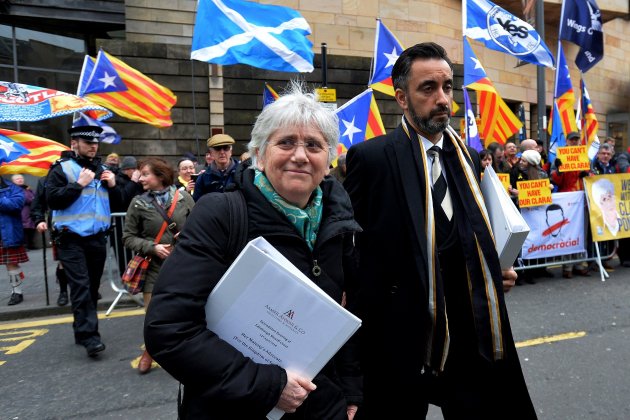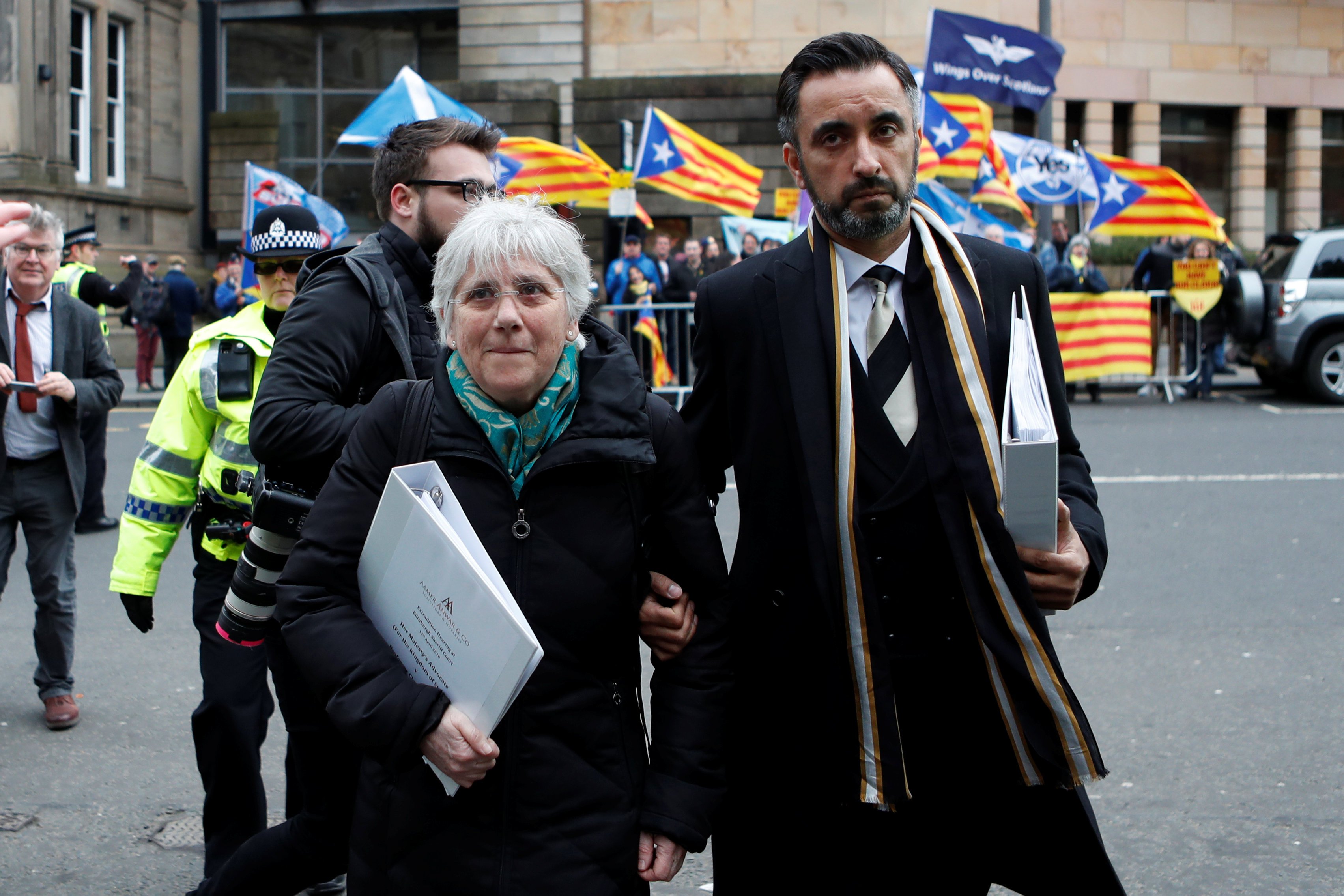It will be months yet before Edinburgh Sheriff Court gives a verdict in the Clara Ponsatí case. The Catalan minister in exile today attended a preliminary hearing before the Scottish judge who has to decide on whether or not to extradite her as requested by Spain.
According to Ponsatí's defence counsel, the case will start on 30th July, with further preliminary hearings on 15th May and 5th July.

Ponsatí and her lawyer, Aamer Anwar, arriving at court this morning / Efe
After the hearing, the minister exited court alongside her lawyer, Aamer Anwar, who read a brief statement. The education minister's counsel argued that his client is innocent of the charges of rebellion and misuse of public funds and accused Spanish authorities of an "abuse of process". The minister herself, meanwhile, made no comment outside court.
"A gross distortion of the truth"
Anwar was strongly critical of Spanish authorities, describing the arrest warrant as a "politically-motivated prosecution" and a "gross distortion of the truth" there being no evidence in the warrant showing her to be responsible for any act of violence or misuse of public funds for the referendum.
"The warrant fails, in over 19 pages, to ever specify a single act of violence or incitement attributable" to the minister, the lawyer said. He also criticised the warrant, written by Supreme Court judge Pablo Llarena, of not mentioning the "brutal, unprovoked attacks on peaceful Catalans" he says Spanish National Police and Civil Guard are accused of.
Anwar said that the charge of rebellion has no equivalent in Scottish law and that any extradition would be "unjust, oppressive and incompatible with human rights". He believes that, if she were to be extradited, she would be "punished, detained or restricted in her personal liberty because of her political opinions".
Ponsatí in Scotland
Ponsatí, who presented herself voluntarily in court last month and who was granted release on bail, remains in Scotland. She returned to her job as a professor at the University of St Andrews after travelling to the UK from Belgium in March.
Her lawyer discussed the possibility of the minister remaining in the country in the context of Scotland's "proud history of protecting those who face a grave risk of injustice and oppression".

